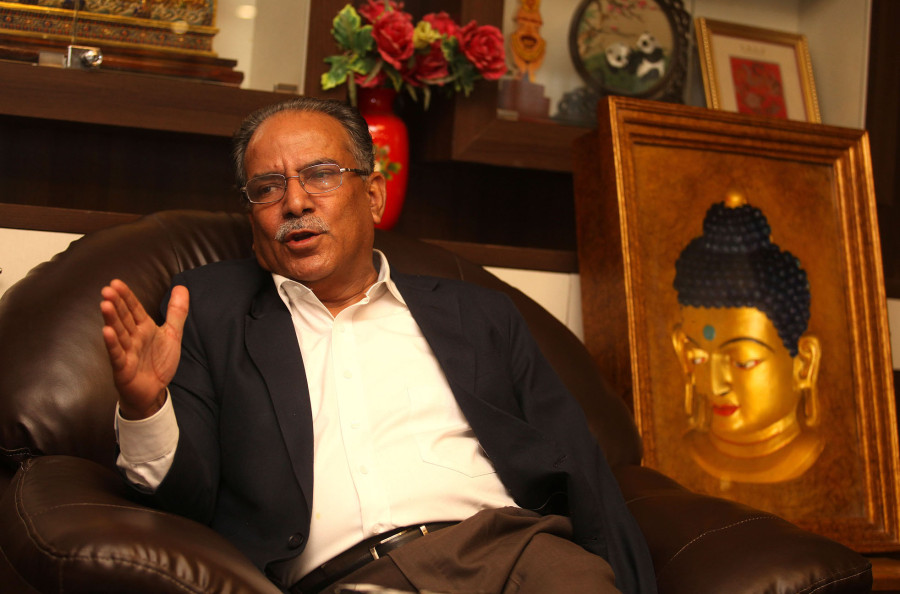Editorial
There are no heroes in The Hague
By throwing an open challenge to be taken to the International Criminal Court, Dahal has also trivialised the hallowed institution.
Former Liberian president Charles Taylor, former Libyan president Muammar Gaddafi, former Bosnian politician Radovan Karadzic, former Yugoslav politician Slobodan Milošević, and Joseph Kony, the leader of the Lord's Resistance Army, a guerrilla group that formerly operated in Uganda. If there is anything in common between these leaders from across the world, it is that they have all been brought in front of the International Criminal Court (ICC) in The Hague—and none has come out a hero.
So when former prime minister Pushpa Kamal Dahal on Monday claimed he was ready to be taken to the ICC because it would make him a hero, he stirred up a controversy. Though not one to shy away from controversy, Dahal’s latest declaration is bizarre even by his own standards as his statement trivialises the transitional justice mechanism which, despite all its flaws, remains an anchor to which the hopes of the victims of the 10-year Maoist insurgency are tethered.
If the former chairman of the erstwhile Communist Party of Nepal (Maoist) has any misgivings about what the ICC stands for, it 'investigates and, where warranted, tries individuals charged with the gravest crimes of concern to the international community: genocide, war crimes, crimes against humanity and the crime of aggression'. The World Court is clearly no place to go to earn global fame.
By throwing an open challenge to be taken to the ICC, Dahal has also trivialised the hallowed institution that holds out the last promise of justice to victims the world over. What’s more, coming on the day four organisations—Amnesty International, International Commission of Jurists, Human Rights Watch and TRIAL International—put out their statements criticising the government for its inaction on transitional justice, one wonders if Dahal’s statement was a preemptive response to an inkling of what was to come. After all, he has time and again alluded to how the Truth and Reconciliation Commission had been a burden, like a sword of Damocles hanging over his head, ever since his party came to mainstream politics.
Although the government established two transitional justice bodies to address grievances against insurgency-era crimes—Truth and Reconciliation Commission and Commission of Investigation on Enforced Disappeared Persons—there has been little progress towards achieving the goals of justice and reconciliation in the past several years. As political parties worked overtime to turn these commissions into just an eyewash in front of the international human rights community, the post-insurgency era has been a classic case of lost opportunity. Rather than helping the victims get a sense of justice, the commissions, owing to their inaction, served the interests of the alleged perpetrators and beneficiaries of the armed conflict.
In fact, in April this year, the five special rapporteurs of the United Nations High Commissioner for Human Rights had written to Foreign Minister Pradeep Gyawali seeking transparency and proper consultation before selecting the members and chairpersons of the Truth and Reconciliation Commission and the Commission of Investigation on Enforced Disappeared Persons. None of the positions at either commission has been fulfilled as yet. And there is no end in sight to this limbo. With less than two years for the commissions to go, Nepal’s truth and reconciliation programme is botched, to say the least.




 16.12°C Kathmandu
16.12°C Kathmandu













